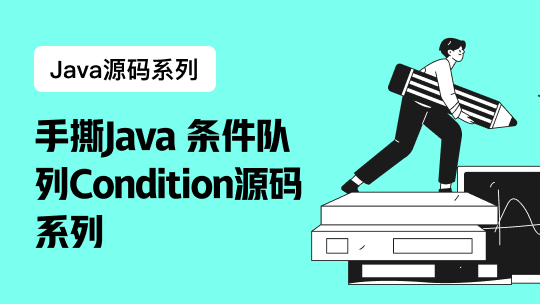在Java程序的单元测试中常用的mock工具有Mockito和EasyMock。但是这两种mock工具都无法实现对静态、final、私有方法或类的mock。因此有了功能强大的PowerMock工具。PowerMock并不是一个独立、全新的工具而是在Mockito和EasyMock的基础上进行的扩展,它分别有针对Mockito级EasyMock的扩展实现。本文主要介绍PowerMock的常见用法:
1.pom依赖
<dependency>
<groupId>junit</groupId>
<artifactId>junit</artifactId>
<version>4.10<version>
<scope>test</scope>
</dependency>
<dependency>
<groupId>org.powermock</groupId>
<artifactId>powermock-module-junit4</artifactId>
<version>1.6.3</version>
<scope>test</scope>
</dependency>
<dependency>
<groupId>org.powermock</groupId>
<artifactId>powermock-api-mockito</artifactId>
<version>1.6.3</version>
<scope>test</scope>
</dependency>
2.基本用法
2.1 测试类加上必要的注解
@RunWith(PowerMockRunner.class)
@PrepareForTest({ExtensionLoader.class,Configs.class}) //静态类,测试类本身(需要mock构造方法时)
@PowerMockIgnore("javax.management.*")
2.2 mock基本对象
测试 convert.convertAndHanlder(method,ref,bead)方法
@Mock
Convert convert;
when(convert.convertAndHanlder(eq(method),eq(ref),eq(bead))).thenReturn(bead);
2.3 mock无返回值的方法
@Mock
ProviderComposeConfig providerComposeConfig;
doNothing().when(providerComposeConfig).putSync(eq(providerConfig));
2.4 mock方法执行异常场景
@Mock
ProviderComposeConfig providerComposeConfig;
doThrow(new Exception("执行失败")).when(providerComposeConfig).putSync(eq(providerConfig));
2.5 mock 静态方法
测试Configs.getConfig(ProviderComposeConfig.class)方法
前提:@PrepareForTest注解中添加该类:ProviderComposeConfig.class
@Mock
ProviderComposeConfig configs;
PowerMockito.mockStatic(Configs.class);
when(Configs.getConfig(eq(ProviderComposeConfig.class))).thenReturn(configs);
mock无返回值的static方法
// "xxxUtil" 是类名 // "xxxStaticMethod" 是 static 方法的方法名 // 这里假设 "xxxStaticMethod" 需要两个参数,一个是 int 型,一个是 String 型 PowerMockito.doNothing().when(xxxUtil.class, "xxxStaticMethod", 1,"mysql");
mock可变参数传递
public class Demo {
public static void test(String... args) {
System.out.println(args);
}
}
测试方法:
@RunWith(PowerMockRunner.class)
@PrepareForTest({Demo.class})
@PowerMockIgnore("javax.management.*")
public class DemoTest {
@Test
public void test() throws Exception {
PowerMockito.mockStatic(Demo.class);
PowerMockito.doNothing().when(Demo.class,"test",eq("liu1"),eq("liu2"));
Demo.test("liu1","liu2");
}
}
2.6 mock 构造方法
前提:@PrepareForTest注解中添加该类:HookContext.class
@Mock
HookContext context;
//无参构造
PowerMockito.whenNew(HookContext.class).withNoArguments().thenReturn(context);
//有参构造
PowerMockito.whenNew(HookContext.class).withArguments(anystring()).thenReturn(context);
③完成实例
被测试类:
public class HandlerHook {
public final static String id = "handler";
@Override
public Bead doCall(HookContext context, Bead bead, AccessId id) throws Throwable {
ProviderComposeConfig configs = Configs.getConfig(ProviderComposeConfig.class);
ProviderConfig config = configs == null ? null : configs.get(id);
if (config == null) {
// 即没有该服务,1.本地调用 2.客户端信息有误,访问IP:PORT 却没有服务
return null;
}
// 拿到转换器,调用
Convert convert = ExtensionLoader.getExtensionLoader(Convert.class).getExtensionById(ConvertProcessor.id);
return convert.convertAndHanlder(config.getMethod(), config.getRef(), bead);
}
}
测试类:
@RunWith(PowerMockRunner.class)
@PrepareForTest({ExtensionLoader.class,Configs.class})
@PowerMockIgnore("javax.management.*")
public class HandlerHookTest {
@Mock
HookContext hookContext;
@Mock
Bead bead;
@Mock
AccessId accessId;
@Mock
ExtensionLoader<Convert> extensionLoader;
@Mock
ProviderComposeConfig configs;
@Mock
ProviderConfig config;
@Mock
Method method ;
@Mock
Object ref;
@Mock
Convert convert;
private HandlerHook handlerHook = new HandlerHook();
@Test
public void doCall() throws Throwable {
PowerMockito.mockStatic(Configs.class);
when(Configs.getConfig(eq(ProviderComposeConfig.class))).thenReturn(configs);
when(configs.get(eq(accessId))).thenReturn(config);
PowerMockito.mockStatic(ExtensionLoader.class);
when(ExtensionLoader.getExtensionLoader(eq(Convert.class))).thenReturn(extensionLoader);
when(extensionLoader.getExtensionById(eq("map"))).thenReturn(convert);
when(config.getMethod()).thenReturn(method);
when(config.getRef()).thenReturn(ref);
when(convert.convertAndHanlder(eq(method),eq(ref),eq(bead))).thenReturn(bead);
assertEquals(bead, handlerHook.doCall(hookContext, bead, accessId));
}
}













